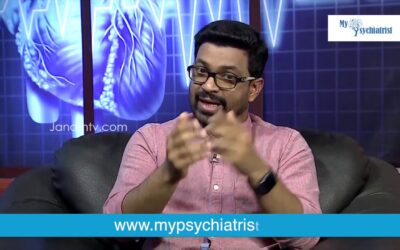Learning Disability or Specific learning disorder is a brain development disorder which affects academic skills. These skills include ability to read correctly and fluently, ability to understand what is read, spelling, expressing thoughts in writing, and mathematical skills like arithmetic, calculations, and reasoning (the ability to solve a problem using mathematics). One of the common disabilities is the inability to link letters (alphabets) with the sounds used in the language. The difficulties may involve only one or all the domains of reading, spelling, writing, and mathematics.
The problem usually becomes evident once the child starts going to school. The manifestation may only occur in higher classes if the disability is less severe and the child has high motivation and puts in extra compensatory efforts for the same. Academic difficulties are found to continue despite adequate extra help from teachers or at home. There may be a tendency for the child to avoid activities that requires academic skills and they may focus more on extra-curricular activities. An uneven profile of abilities is common, such as above-average abilities in drawing, design etc., but reading may be slow and requiring much effort with poor understanding of the read matter and difficulty in written expression. Sometimes the symptoms may be behavioural (e.g., a reluctance to engage in learning; opposition to authority figures and defiance). During adolescence and into adulthood, such people may continue to make numerous spelling mistakes, have difficulty in reading and trouble pronouncing longer words with multiple syllables. They may frequently need to read material many times before it is understood and have trouble making inferences from written text. They may avoid activities that require reading or arithmetic (reading for pleasure, reading instructions etc.). As adults, they tend to avoid both leisure and work-related activities that demand reading or writing or use alternative approaches to access print (e.g., text-to-speech/speech-to-text software, audiobooks, audio visual media etc.).
On an average, 1 to 3 out of every 20 school going children have specific learning disorder across the academic domains of reading, writing, and mathematics. It is 2 to 3 times more common in boys than girls.
Prematurity or very low birth weight and exposure to nicotine during pregnancy increases the risk for specific learning disorder. Both reading ability and reading disability in alphabetic and nonalphabetic languages are highly heritable traits. Other manifestations of learning abilities and disabilities are also passed on genetically. In addition, learning disability in the parent can also interfere with the child’s academic support system as they may not be able to help the children adequately in their studies.
Before a diagnosis of learning disability is made, it is important to rule out other problems that may present similarly. These include intellectual disability, attention deficit hyperactivity disorder, vision and hearing problems, neurological disorders, psychological issues at school and other general problems like sickness, inadequate nutrition, lack of attendance etc. The academic achievement in those with learning disability is typically described as “unexpectedly low”.
In addition to interviewing you and your child, the doctor may ask for additional reports from the school teacher including details of academic assessments. Detailed assessments may need to be carried for IQ and to identify the areas of academic disability. Other investigations may be required to rule out neurological or medical problems and problems with vision and hearing.
Based on the findings on assessment of academic skills, your child’s therapist can identify problem areas and provide tasks and exercises to improve the skills in these areas. Additional focussed individual help by trained therapists in such cases is also of benefit. Several schools and curricula have provisions for choosing subjects and altering assessment patterns to accommodate learning disability. Examples include not penalising spelling mistakes in non-language subjects like science and history, and provision for not studying additional languages.
Specific learning disorder if undetected can have negative functional consequences across the lifespan, including low academic attainment, school dropouts, psychological distress, unemployment or under-employment, and lower incomes. Better social and emotional support can improve these outcomes.



0 Comments